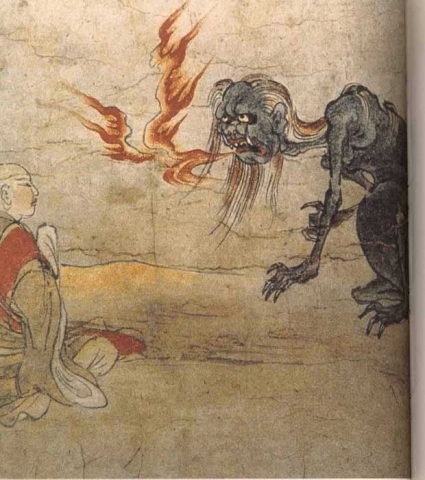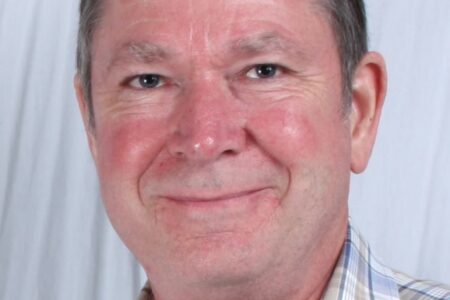COMMENT: The Pathology of Wealth
Another day, another $46,634. That is, if you’re among Canada’s top 100 CEOs, who pocketed that amount by 1:11 pm January 2, the first official day of work this New Year. This figure comes from the Canadian Centre for Policy Alternatives (CCPA), which releases a report every January on the hyper-inflated difference between the richest One Percent and the rest of us. Most Canadians would have to work the entire year to earn $46,000, assuming they’re in that income bracket to begin with, and assuming that amount is net after taxes. The CCPA has a wealth counter on its website showing the amounts as they increase day to day. By the time I sat down to write this article on January 12, Mr. Top 100 had amassed well over $270,000 to a blue collar worker’s $1,467.
Sigh. I’d really hoped to open the New Year with happier news.
What’s most shocking to me about this is how this fact alone hasn’t sparked a massive revolution. Are we so numb we can’t lift a finger to help ourselves anymore? Remember unions, the folks who brought you the weekend? As if to add insult to injury, The Province newspaper today has as its headline: Longer Hours, More Stress: The New Reality in the Canadian Workplace. A masterful piece of propaganda designed to shore up the exploitation of the working class by the One Percent, it profiles workers who work between 50-80 hours per week. Yet incredibly, most of those interviewed basically shrug their shoulders as if to say, “Oh, well. That’s how it is.” One has to wonder: given the historical trend for wealthy elites to escalate oppression to the very limit, will we eventually see a 24/7 workweek this century? And would such a regime even foster any resistance anymore?
Granted, the man profiled by The Province who works for an engineering firm probably doesn’t need the extra income his extra 20 hours per week nets him. And he’s certainly earning far more than your average construction worker or restaurant service person. So what’s going on? Have we succumbed to what Chris Hedges dubbed the Pathology of Wealth even in the middle class—what’s left of it? The insatiable desire to climb the ladder of success, build career points, and get yet more unnecessary stuff? Writer Patricia Lawson in her blog Euroconcerns relates the story of an investment consultant who was “disappointed” when he “only” made millions, in a game where the new benchmark is the tens of millions or even billions.
This is where the pathology comes in. Lawson quotes personal growth guru Shakti Gawain, who nails the point: “Well, of course, at that point we’re really talking about power, and we’re really talking about a kind of competition that goes on among the richest people. Who’s more powerful than whom? Who’s the richest of all?” And despite numerous studies showing that even though average income has soared since 1950, so has the incidence of mental illness in society. As Lawson notes, it was economist John Kenneth Galbraith who first described the Buddhist concept of Samsara in economic terms: an emptiness that can’t be filled no matter how much you throw into it. The ‘Hungry Ghost’ that continues to ravenously consume its host. And no end in sight for a society chipping away at its very foundations.
And with the Hungry Ghost comes a stinginess that borders on the ridiculous. As Stacy Palmer from the Chronicle of Philanthropy said in the AP article by Donna Gordon Blankinship: “The bulk of money raised by charities today comes from non-billionaires giving $5, $10 or $50 at a time.” Palmer followed up with a reality check about the giving patterns of rich people: “only 17 people on the Forbes list of the 400 wealthiest people in America are also on the Chronicle’s list of the most generous American donors.”
And even then, often the real reason for charitable giving isn’t to help those worse off, but to get tax breaks. The American phenomenon of wealthy families setting up charitable foundations, while obviously doing some good work, is really a way to avoid paying taxes. After all, that’s why the rich have the poor: to pay the taxes they refuse to. After decades of tax cuts lobbied by Canada’s richest One Percent, this class now pays a lower income tax rate than the poorest Canadians. Having grown up the son of a civil servant who had a reasonably decent income and benefits—another endangered species—it simply staggers my imagination to think that these people feel they need more. As my friend Judy Wapp so aptly puts it: “The rich want what they’ve always wanted. Everything.”
Environmentalists and progressives often debate what it is that’s preventing society from moving into a more sustainable civilization. We must surely be the most educated, aware generation in history when it comes to the causes of the planet’s destruction. And we have the innovative know-how to solve many of our most pressing environmental issues. Yet we’re pumping more carbon into the atmosphere than we were 20 years ago. Why? Not hard to guess: The One Percent who have vested interests in the same old polluting energy systems and all they support. How else could a company like British Petroleum defile the entire Gulf of Mexico and still remain a functioning entity instead of a corporate criminal stripped of its right to exist?
Clearly the Pathology of Wealth is at the root of the problem. Lawson in her article draws on several psychological and sociological studies to support the concept. A University of Rochester study done in 2009 and published in the Journal of Research in Personality underscores the point. “What’s ‘striking and paradoxical’ about this research,” says its author Edward Deci, a professor of psychology at the university, “is that it shows that reaching materialistic and image-related milestones actually contributes to ill-being; despite their accomplishments, individuals experience more negative emotions like shame and anger and more physical symptoms of anxiety such as headaches, stomachaches, and loss of energy.” But far more chillingly, as Lawson found when she hung out with Boston Ivy League students, it seems to accompany a loss of empathy—that vital quality that allows us to feel the suffering of another human being. This decline in empathy has also been noted in studies of graduating classes, though not just amongst the children of the One Percent.
So it’s no wonder Wall Street executives have no compunction about raiding pension funds, leveraging fraudulent securities and promoting sketchy banking schemes. If it didn’t smack so much of ‘gold fever’ driving investors over the precipice, I’d wonder if the whole 2008 financial collapse wasn’t just another scheme by the One Percent to steal more from the rest of us. One more step backwards into a feudal system where they own everything and everyone else works for them for token wages. Of course, it’s a system designed to fail: as workers struggle to pay bills with 60-80 hour work weeks, and greed or inflation rockets the cost of living ever higher, it’s only a matter of time before the whole house of cards collapses.
Some years ago I coined an expression: Greed makes people stupid. Think about it. Now another new expression needs coining: The pursuit of wealth is a sickness. (I can hear the dismissive chuckles in the boardroom of The Wall Street Journal all the way from here.) It has all the earmarks of addiction: the fixation on a substance to fill a spiritual void; the continual ratcheting up of need for the substance; and the swath of destruction it leaves behind in families, in ecosystems, in society at large. If we’re to stand a chance of saving this gorgeous Earth, this is a paradigm change that must come—soon. Greedheads, start dialing your psychiatrists now…
SOURCES: Check out Patricia Lawson’s excellent article, which is well referenced. The topic seems to be gaining some traction, as in Lewis Diuguid’s article for the Kansas City Star: http://www.mcclatchydc.com/2012/09/21/168750/commentary-a-wealthy-addiction.html. There’s also Richard Brenneman’s blog on the Pathology of Wealth: http://richardbrenneman.wordpress.com/2012/02/07/parenti-democracy-and-the-pathology-of-wealth/, headed by a great quote from Aldous Huxley. Brenneman features a talk by independent political analyst Michael Parenti, whose talk is available here: http://www.alternativeradio.org/products/parm032
Art Joyce is a Slocan-based author, poet, and journalist. He writes regularly for the Valley Voice.



























Comments